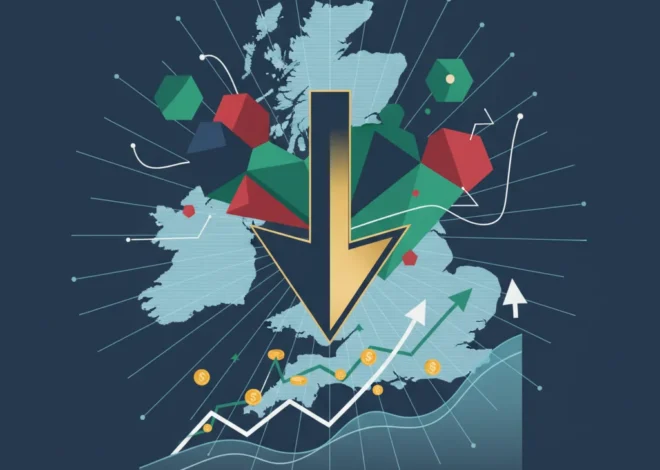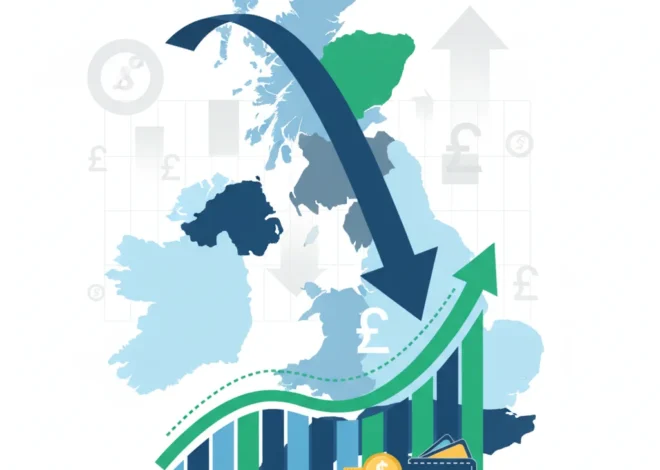The Spy in the System: Why a Dropped China Espionage Case is a Red Flag for the UK Economy and Investors
A Political Storm with Economic Consequences
In the corridors of Westminster, a storm is brewing that extends far beyond the political realm, sending ripples through the UK’s financial and business sectors. At the heart of it lies a deeply unsettling question of national security: why were charges suddenly dropped against two British men, one a parliamentary researcher, accused of spying for China? Prime Minister Keir Starmer is now facing immense pressure to release key witness statements, a move that could shed light on a decision that has left many security experts and politicians perplexed and concerned. According to the Financial Times, this decision by the Crown Prosecution Service (CPS) to discontinue the case on “public interest” grounds has ignited a firestorm of debate about the UK’s stance on foreign interference and its implications for the nation’s economic sovereignty.
For investors, business leaders, and anyone involved in the UK economy, this is not merely a political headline. It is a stark reminder of the growing intersection between geopolitics and finance. When a nation’s ability to protect its own democratic and economic institutions from foreign espionage is called into question, it erodes the very foundation of trust and stability that underpins a healthy investment climate. The case serves as a critical litmus test for the new government’s resolve in confronting hostile state activity, and the outcome will have lasting repercussions on everything from foreign direct investment to the security of our burgeoning fintech sector.
Deconstructing the Controversy: More Than Just a Dropped Case
The case revolves around allegations that a parliamentary researcher, who had access to sensitive information and influential politicians, was operating on behalf of Chinese intelligence services. The charges, brought under the new National Security Act, were seen as a landmark moment in the UK’s efforts to combat modern espionage. The subsequent decision by the CPS to drop the case, citing that a prosecution was “no longer in the public interest,” has been met with widespread disbelief and criticism from senior Conservative figures, including former leader Sir Iain Duncan Smith (source).
The lack of a clear, public explanation has fueled speculation. Was sensitive intelligence at risk of being exposed in a public trial? Was there a diplomatic trade-off behind the scenes? Or does it reveal a weakness in the UK’s legal framework to prosecute complex state-sponsored espionage cases? The government’s promise to publish witness statements is an attempt to quell this speculation and restore confidence. However, the damage to perception may already be done. For the international investing community, transparency and the robust rule of law are non-negotiable. Any suggestion that legal decisions can be swayed by opaque “public interest” arguments introduces a level of political risk that can deter capital and destabilize the stock market.
Gold Shatters ,000: More Than Just a Price, It's a Global Economic Signal
The Economic Battlefield: Espionage in the 21st Century
Modern espionage is less about trench coats and secret dead drops and more about ones and zeros, intellectual property, and economic strategy. State-sponsored actors are increasingly targeting the economic engines of rival nations. This includes stealing proprietary data from leading companies, infiltrating critical infrastructure, and gaining illicit access to sensitive policy discussions that could give them an edge in trade negotiations. The sectors most at risk are often the UK’s crown jewels: advanced manufacturing, pharmaceuticals, and, critically, our world-leading financial technology and banking sectors.
A single breach can have devastating consequences. Imagine a foreign power gaining access to the source code of a revolutionary blockchain payment system or the algorithmic trading strategies of a major London hedge fund. The direct financial loss would be immense, but the secondary effects—loss of competitive advantage, reputational damage, and a chilling effect on innovation—would be even more catastrophic for the broader economy. This is why the perceived failure to prosecute a high-profile espionage case is so alarming; it signals a potential vulnerability that adversaries can, and will, exploit.
What’s at Stake: The UK-China Economic Symbiosis
To understand the complexity of the government’s position, it’s crucial to appreciate the sheer scale of the UK-China economic relationship. This is not a simple adversarial dynamic; it is a deeply intertwined partnership fraught with strategic challenges. The following table provides a snapshot of this financial interdependence, highlighting the delicate balance the UK must maintain.
| Economic Area | Recent Figures & Context | Potential Risk from Geopolitical Tensions |
|---|---|---|
| Bilateral Trade | Total UK-China trade was approximately £100 billion in 2023. China remains one of the UK’s largest trading partners. | Increased tensions could lead to retaliatory tariffs, trade barriers, and supply chain disruptions, impacting UK businesses and consumers. |
| Chinese Investment in UK | Significant investment in UK infrastructure (e.g., nuclear energy, telecoms) and acquisition of UK companies. | Heightened scrutiny under the National Security and Investment Act could chill future investment, but lax enforcement could compromise critical sectors. |
| UK Financial Services | The City of London is a major hub for offshore renminbi trading and a key partner for Chinese firms looking to access global capital markets. | Political fallout could lead China to favour other European financial centres, eroding London’s competitive edge in global finance. |
| Higher Education & Research | Chinese students contribute billions to the UK economy. Joint research ventures are common in science and technology. | Concerns over intellectual property theft and espionage on university campuses could lead to stricter controls, harming a vital export sector. |
A Billion Deal, A Sudden Downgrade: Did Anglo American Miss a Red Flag with Teck?
The Global Ripple Effect: A Test Case for Western Economies
This incident is being watched closely from Washington to Brussels. Every major Western economy is grappling with the same challenge: how to benefit from economic engagement with China while defending against its increasingly assertive intelligence operations and unfair trade practices. The UK’s handling of this case will be seen as a bellwether for the broader Western approach. A response perceived as weak could embolden further aggressive actions, while an overly hawkish stance could trigger economic retaliation from Beijing, impacting global supply chains and financial markets.
For international investors, this adds another layer of complexity to their risk calculus. It reinforces the shift from a purely economic globalization to one defined by geopolitical blocs and strategic competition. Companies and funds are now forced to factor in the potential for sanctions, asset seizures, and politically motivated regulatory hurdles. The era of focusing solely on traditional economics and financial statements is over; a sophisticated understanding of geopolitics is now essential for successful long-term investing. According to analysts cited by the FT, the lack of a firm response could undermine the confidence of allies and partners in the UK’s security commitments.
Fortifying the Defenses: The Path Forward for Business and Government
While the political debate rages, the practical implications for the financial and business communities are clear. The threat of state-sponsored economic espionage is real, persistent, and sophisticated. It’s no longer a problem just for the government or MI5; it’s a boardroom-level issue.
Businesses, particularly in the fintech, biotech, and advanced technology sectors, must urgently review and enhance their cybersecurity protocols. This includes robust employee vetting, safeguarding intellectual property, and developing resilience against state-level cyberattacks. For investors, geopolitical risk analysis must be fully integrated into due diligence processes. This means evaluating a company’s exposure to volatile regions, the security of its supply chains, and its preparedness for politically induced market shocks.
From a government perspective, the challenge is to create a policy framework that is both strong and smart. This involves strengthening counter-intelligence capabilities, providing the CPS with the tools and legal clarity to prosecute complex national security cases, and working with allies to present a united front against economic coercion and espionage. Striking this balance—protecting national security without resorting to protectionism that would harm the UK’s open economy—is perhaps the single greatest challenge of our time.
Ultimately, the dropped spy case is a symptom of a larger, systemic challenge. It has pulled back the curtain on the vulnerabilities that exist at the nexus of politics, security, and finance. The government’s next steps will be crucial. A transparent and decisive response can help restore confidence and reinforce the UK’s reputation as a safe and stable place for business. Conversely, continued opacity and perceived weakness could inflict long-term damage on the UK’s economic standing, proving that the most significant threats to our prosperity are not always visible on a balance sheet.


